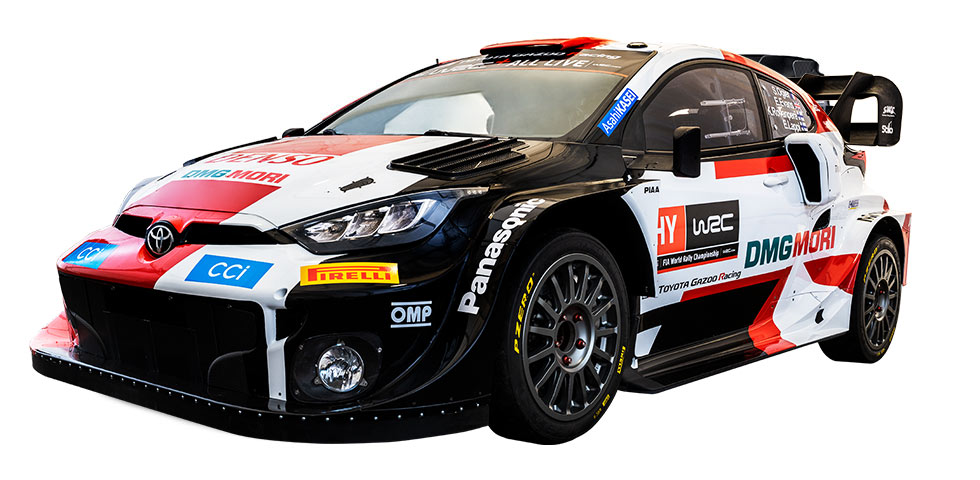The new breed of World Rally Championship cars, the 'Rally1 HYBRID' is a brand-new rally car designed to the revolutionary new-for-2...
The new breed of World Rally Championship cars, the 'Rally1 HYBRID' is a brand-new rally car designed to the revolutionary new-for-2022 FIA Rally1 technical regulations, which represent rallying’s most significant technical overhaul for a generation. Rally1 cars replace World Rally Cars at the highest level of the WRC and feature a number of significant changes compared to their predecessors, including the introduction of technologies promoting sustainable motorsport. For the first time, the cars in rallying’s top category have hybrid electric power. The existing 1.6-litre direct-injection turbocharged engine – one of the only features of the previous generation of World Rally Cars to be carried over to Rally1 – is paired with a hybrid unit that is common to every competing car.
The hybrid unit consists of a 3.9-kilowatt-hour battery coupled to a motor-generator unit (MGU), delivering an additional 100 kilowatts (134 horsepower) and 180 newton metres of torque during acceleration. It means that, with the engine and hybrid unit combined, Rally1 cars are capable of a maximum power output of more than 500 PS and maximum torque of over 500 Nm. The unit regenerates energy under braking and the battery can also be plugged in to an external power supply to be recharged during service breaks.
Alongside hybrid power, Rally1 cars run on a 100 per cent sustainable fossil-free fuel. With a renewable blend of synthetic and bio-fuel components, the fuel is the first of its kind to be used in an FIA motorsport world championship.
The regulation changes also cover the car’s chassis, which is now formed by a spaceframe design that offers increased safety protection for the driver and co-driver compared to the previous bodyshells. On the outside, some of the aerodynamic features seen on World Rally Cars between 2017 and 2021 have been prohibited to control costs. Still, elements such as side skirts and large rear wings remain to provide stability, while air ducts can be used to cool parts including the hybrid unit.
There has also been a simplification of the cars’ transmissions. The cars remain four-wheel drive but now have five-speed gearboxes with a mechanical shift and no longer feature an active centre differential. The suspension is also now more straightforward with a reduced amount of damper travel permitted.
Rally1 HYBRID Specifications
| Engine | Specifications |
|---|---|
| Engine type | In-line 4-cylinder turbo, direct injection, Hybrid Power Unit |
| Engine displacement | 1,600 cc |
| Maximum power | Over 500 PS |
| Maximum torque | Over 500 Nm |
| Bore / stroke | 83.8 mm / 72.5 mm |
| Air restrictor | 36 mm, following FIA regulations |
| Transmission | Specifications |
| Gearbox | 5 speed mechanical shift |
| Gearbox final drive | 4 wheel drive, 2 x mechanical differentials |
| Clutch | Double Plate Sintered Clutch |
| Chassis / suspension | Specifications |
| Front / rear | Macpherson |
| Suspension travel | Damper travel 270mm |
| Steering | Hydraulic Rack and Pinion |
| Braking system | Gravel 300 mm, Tarmac 370 mm |
| Dimension and weight | Specifications |
| Length / width / height | 4,225 mm (incl. aero device) / 1,875 mm / adjustable |
| Track width | Adjustable |
| Wheelbase | 2,630 mm |
| Minimum weight | 1,260 kg |
| Performance | Specifications |
| Top speed | 201 kph (Ratio Specific) |



No comments